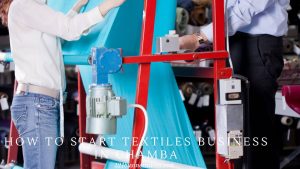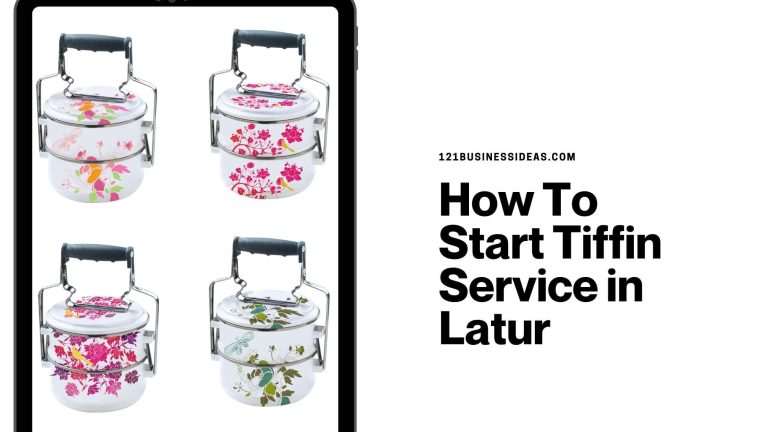How To Start Textiles Business in Chamba
Chamba is a city in India with a population of about 4 million. With the increase in textile manufacturing, it is becoming one of the most flourishing cities for entrepreneurs who want to enter the textile industry. This article will teach you How To Start Textiles Business in Chamba and what you need to know before starting your own business in this industry.
Table of Contents
How To Start Textiles Business in Chamba
The textile industry is the biggest industry in Chamba. There are many ways that you can start a textile business, but the most important thing is making sure the product has quality. You should always make sure to research how much your products cost in order to find the right price.
The textile industry is the major source of revenue in the world. It is one of the most important sectors that contribute to the GDP of many countries. It also provides jobs for millions of people. India is one of the leading global textile manufacturers and its textile production has increased by more than 12% in recent years. However, there is a huge demand for trained professionals in this sector, which is why it’s advantageous to invest in a textile business as well.
Chamba is a city in Maharashtra that has a population of 2 million and is located in the eastern part of India. There are many textile manufacturers and textile traders in Chamba. It has also been recognized as a major hub for textile-based trade.
Entrepreneurs can start their own textile business by doing some research to find out which industry will be most beneficial for them. They should also try to find a business partner they can trust, who can help them get started with their new venture.

The basic requirement to start a Textile business in Chamba
Textiles are one of the most important product categories for a country. It is important for a country to have plenty of textile production facilities and high-quality textile manufacturing in order to keep its economy strong. India is not an exception and it has many textile industries that produce a significant amount of revenue for the country.
The textile industry in India was valued at $2.8 billion in 2013, and this number is expected to grow as people become more aware of the importance of textiles. One company that has shown interest in investing in Chamba is Longaberger Company, which plans on opening up factories there soon.
To start a textile business in Chamba, one needs to fulfill basic requirements like legal registrations to start a business, adequate capital, and experience. For example, the minimum amount required by law is 5 lakhs of rupees. In this case, if the person wants to open a clothing store, it would be easier for them to find a space that offers commercial or industrial land and permits for commercial use.
to start a textile business in Chamba, you will need to have the required capital such as fabric and other raw materials, a market for your products, employees, production facilities, and a name for your company.
How to Buy Raw Materials
Buy your fabrics from different distributors. You can get some fabrics from the local market but they might not have the qualities that you need. The key is to find a reputable distributor who has a large variety of high-quality fabrics.
When you start a new business, you need to buy raw materials to make your product. The first step is finding the right supplier. You should look for a supplier who can supply the raw materials right away and in large amounts. When you find a supplier that meets these requirements, contact them and ask for prices and ask what they will offer you as discounts in case you purchase more than one batch of materials.
Buying raw materials for a textile business is an important first step. However, you may also need to acquire other equipment and machinery before you are able to launch your business. There are many different types of equipment that a fabric producer must buy in order to maintain the profitability of their company. Some examples include spinning machines, weaving looms, and needling machines.
Benefits of Start textile business in Chamba
The textile industry is a very popular industry in Chamba, India. It’s the fourth-largest industrial sector in the country and is growing rapidly. This makes it an excellent choice for someone looking to start their own business. The best part about starting a textile business in Chamba is that there are many opportunities for skilled workers, given that the industry is so popular and there are numerous manufacturing plants operating in the area.
You can start a textile business in Chamba, to create income for yourself. There are many benefits to starting your own textile business. You can create an income for your family and support the local economy at the same time.
Chamba is one of the fastest-growing textile industries in India. It is estimated that the textile market in this city will grow up to $ 16.8 billion by 2020. In order to capitalize on this opportunity, you can start a textile business in Chamba today. Start with your own home-based workshop and gradually expand into retail stores or even bigger manufacturing plants.
India’s textile industry is the second largest in the world. In Chamba, a city in Maharashtra, textile manufacturing is a key industry. The benefits of starting a textile business in Chamba include low labor costs and high-skilled labor. Not only are there many skilled workers to choose from, but there are also government subsidies that help offset some of the initial investment costs.
Conclusion
The business is booming with a good number of factories mushrooming in and around Chamba. It became the third most industrial city in Himachal Pradesh after Shimla and Mandi.
The textile industry has been a key economic activity in India and is one of the most important sectors of the country’s economy. With the increased demand for products such as clothing, furniture, carpets, and so on, there is a great opportunity to start your own business in this sector. However, it can get complicated when you try to begin your business.







